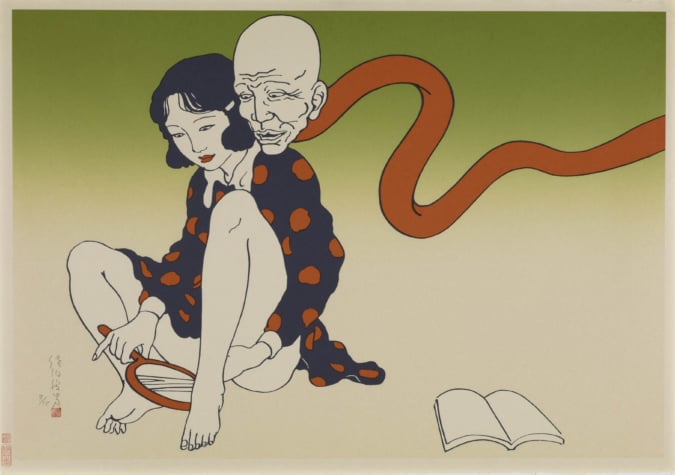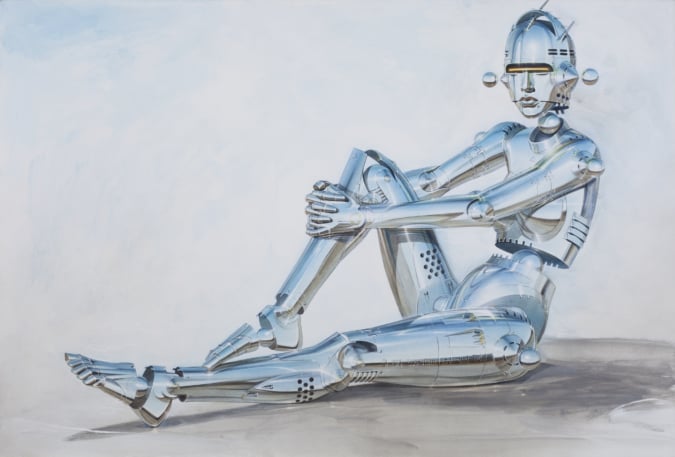Reclining to Reshape Norms
In ‘Kikuo — Reclining Woo-Man’, photographer Ryudai Takano examines identity and social norms and their representations.
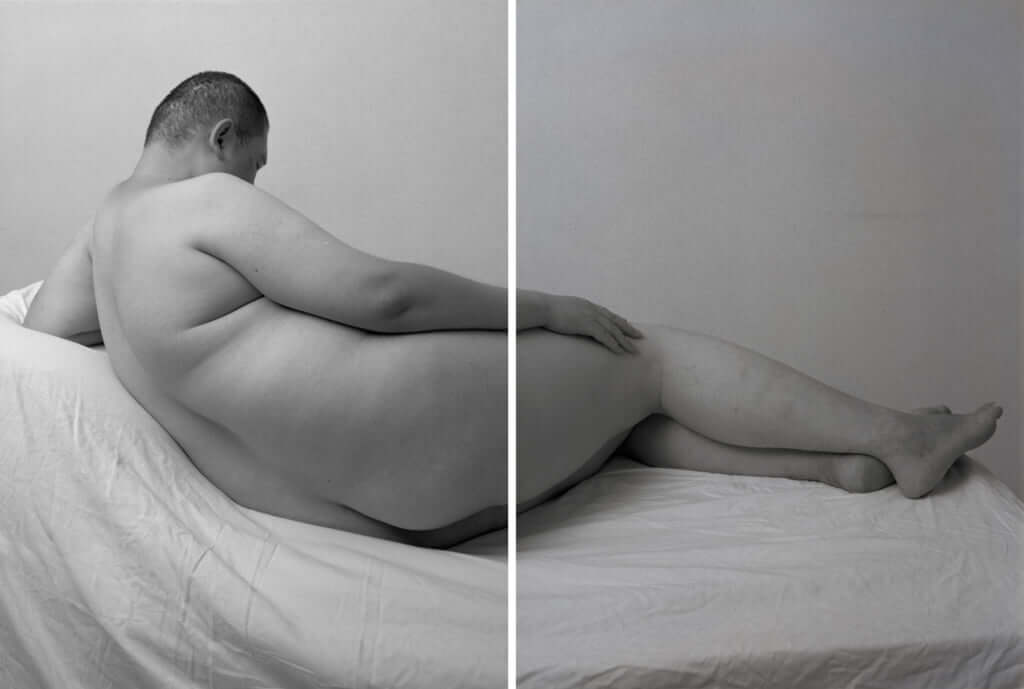
© Ryudai Takano
Born in Fukui in 1963, Ryudai Takano has been working on issues surrounding the body and sexuality since the early 1990s, particularly through series of nudes. Driven by a desire to present the subject in the most objective manner possible, he breaks free from conventions.
Thus, the series Kikuo — Reclining Woo-Man (1997-2001) presents a totally different image of nudity, that of his friend Kikuo; an obese, middle-aged man, immortalised by the artist as he lies on a sofa. To carry out this project — and convince the model —, he wanted to portray a type of naked body that had previously been ignored by the art world. The photographs were published in an eponymous book in 2021.
Going beyond Olympia
The title of the series comes from the term ‘reclining woman’, a classic in European painting that he turns on its head. In the black and white photographs, the model is presented lying down, like Edouard Manet’s Olympia.
As British critic and essayist Duncan Wooldridge expresses in this preface, ‘Where painting had been a space of fancy, Manet brought the nude’s unvarnished reality into the image: his model, Victorine Meurent, returns the gaze, constructing a scene no longer of voyeurism, but exchange. Takano, I think, suspects something in the photographic: that it is used to construct airbrushed fantasies and tidy fictions. He has set out to show the world: one part of this will be to make the male body visible’.
In these photographs, which also take the form of diptychs and triptychs, the body is sequenced, liberated from a gaze that had previously judged it. What is striking is Kikuo’s attitude: he does not act or overplay; his poses imply that this is a presentation, not a representation.
‘Takano is an artist who shows us how to rethink vision. He tests the capacities of photography, playfully, subversively. His use of photography is not to show us what we already know, but to show how the world is formed of a continually shifting, displacing vision, a coming into being’, Duncan Wooldridge continues.
Outside of this series, the artist — who collaborates with the Ibasho et Yumiko Chiba Associates galleries — is primarily known for In My Room, a project that reveals the areas of ambiguity that encompass the binarity of gender or sexual orientation. It was awarded the Kimura Ihei prize in 2005.
Kikuo — Reclining Woo-Man (2021), a series of photographs by Ryudai Takano published by Libraryman.
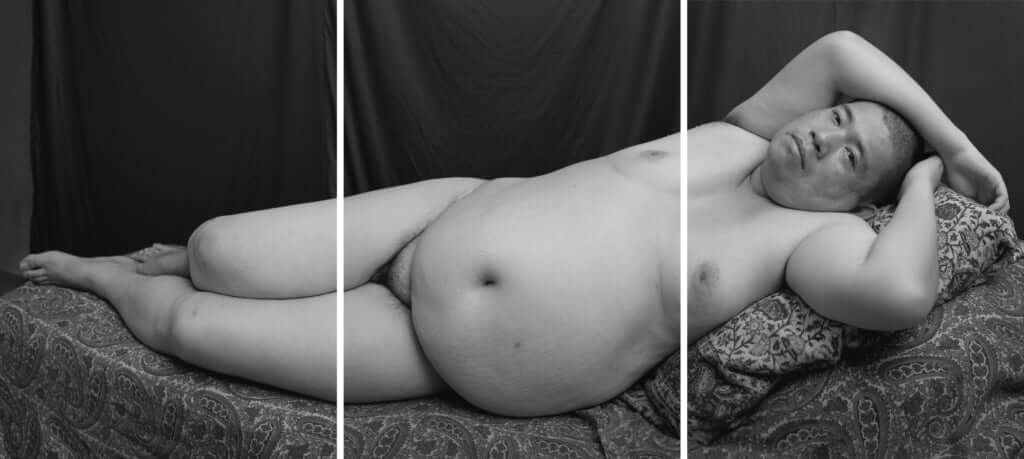
© Ryudai Takano
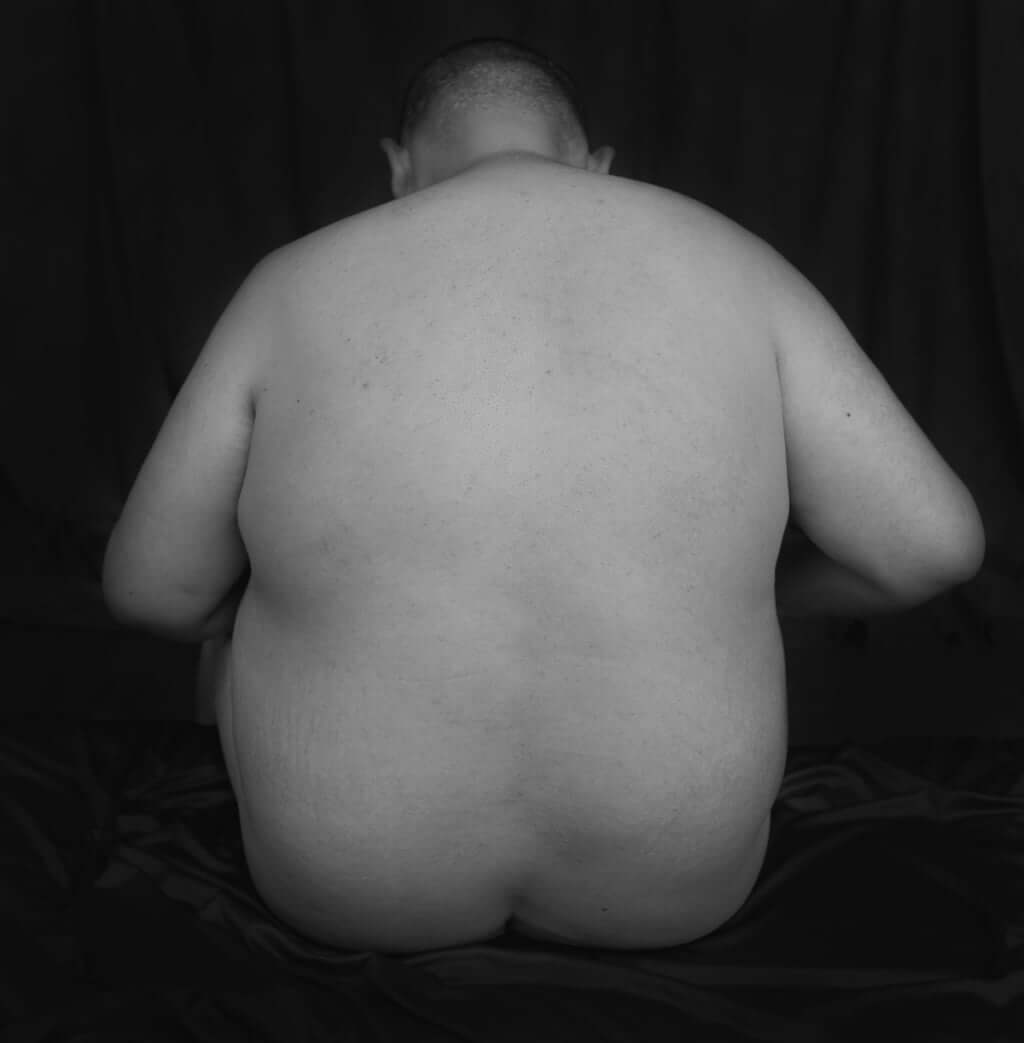
© Ryudai Takano
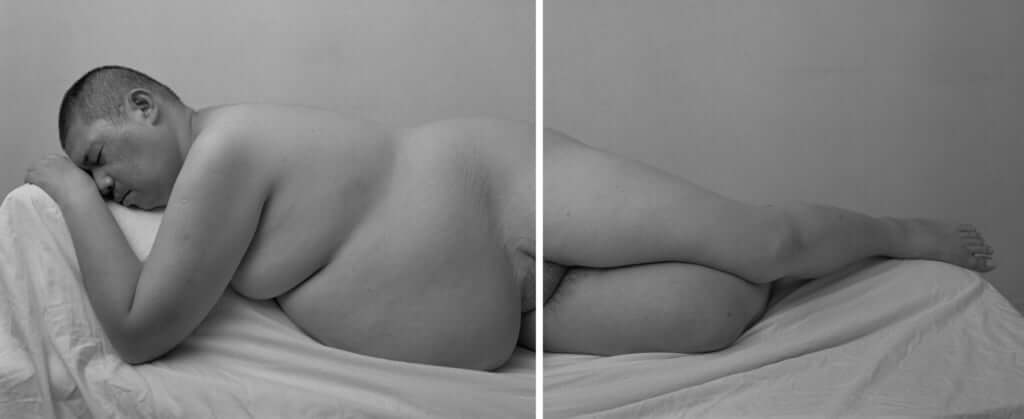
© Ryudai Takano
TRENDING
-
A House from the Taisho Era Reveals Its Secrets
While visiting an abandoned building, Hamish Campbell discovered photographs the owner had taken of the place in the 1920s.

-
The Taboo-Breaking Erotica of Toshio Saeki
The master of the 1970s Japanese avant-garde reimagined his most iconic artworks for a limited box set with silkscreen artist Fumie Taniyama.

-
With Meisa Fujishiro, Tokyo's Nudes Stand Tall
In the series 'Sketches of Tokyo', the photographer revisits the genre by bringing it face to face with the capital's architecture.

-
Masahisa Fukase's Family Portraits
In his series ‘Family’, the photographer compiles surprising photos in which he questions death, the inescapable.

-
Hajime Sorayama's Futuristic Eroticism
The illustrator is the pioneer for a form of hyperrealism that combines sensuality and technology and depicts sexualised robots.


